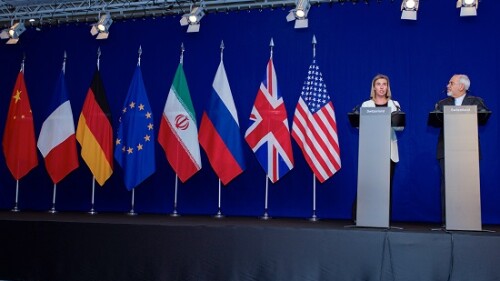Herf focuses on the major effort by Hitler and his minions to transmit their ideas to the Middle East. A specialist in modern German history at the University of Maryland, he highlights a new corpus of information: summary accounts of Nazi shortwave radio broadcasts in Arabic, generated over three years by the U.S. embassy in Cairo. This cache reveals fully, for the first time, what Berlin told the Arabs (and to a lesser extent, the Iranians). Page after page of Nazi Propaganda for the Arab World establishes in mind-numbing but necessary detail how the Germans pursued two themes above all: stopping Zionism and promoting Islamism.
Nazi propaganda in Arabic portrayed World War II, history’s largest and most destructive war, as focused primarily on the sliver of land between the Mediterranean Sea and the Jordan River. This interpretation both flattered Arabs and extended Hitler’s grand theory that Jews wanted to take over the Arab countries and eventually the whole world, promoting the fantasy that the Allied powers were but pawns in this Zionist conspiracy, and that Germany was leading the resistance to them.
The Nazi regime also developed an approach to Muslims that largely ignored the Protocols of the Elders of Zion, Mein Kampf, and other European sources in favor of selected passages from the Qur’an. Nazis portrayed Islam as a natural ally and, accordingly, called for its revival while urging Muslims to act piously and emulate Muhammad. Radio Berlin in Arabic went so far as to declare, “Allahu akbar! Glory to the Arabs, Glory to Islam.” The Nazis noted the parallel between sayings from the Qur’an (Sura 5:82, “You will meet no greater enemy of the believers than the Jews”) and the words of Hitler (“By resisting the Jews everywhere, I am fighting for the Lord’s work”) and helped transform the Qur’an into an anti-Semitic tract whose primary purpose was to call for eternal hatred of Jews.
Having detailed Nazi propaganda in Arabic, Herf then traces its impact, rounding up the evidence pointing to its success. Indeed, ideas the Nazis spread in the Middle East have had an enduring twofold legacy. First, as in Europe, they built on existing prejudices against Jews to transform them into something far more paranoid, aggressive, and murderous. Second, Islamism took on a Nazi quality – hatred of democracy and liberalism, contempt for multiple political parties, preference for unity over division, cult of youth and militarism, authoritarian moralism, cultural repression, and illiberal economics. In brief, the Nazi impact was greater than has usually been understood.





